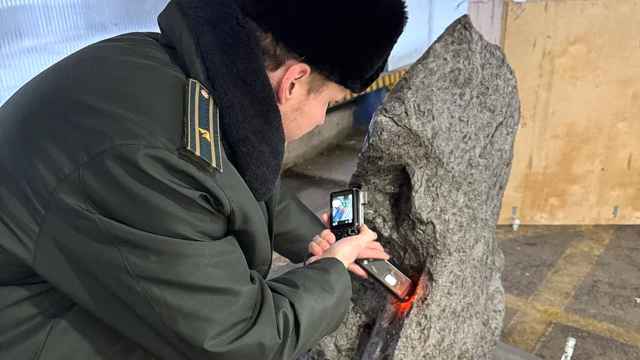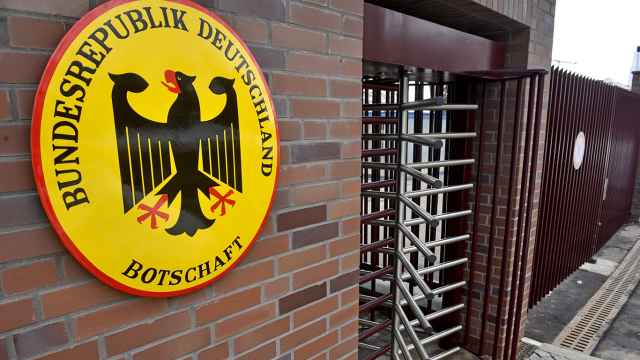The former Russian military headquarters in Tbilisi is not exactly the most salubrious place to make your home. A dank, dingy concrete block with gloomy, corridors smelling of urine and putrefying toilets, it was abandoned by the Russians when they pulled their command center out of Georgia in 2006. It stood empty until it was filled up again by displaced people who fled their homes during the brutal ethnic cleansing perpetrated by South Ossetian militias while Russian forces pushed deep into Georgia during the war in August 2008.
After the war, the Georgian government quickly constructed a series of new settlements along the country’s east-west highway for those who had been displaced by the fighting. The authorities had to act decisively to provide shelter before the winter set in. But these spartan clusters of identical utility cottages are likely to remain a symbol of Georgia’s harrowing defeat — a permanent reminder of suffering and loss.
A report earlier this month from Amnesty International praised the “important steps” that Tbilisi has taken to deal with its displaced people. But it also warned that the situation is still far from ideal. These rural settlements offer few employment possibilities and are often far away from schools and hospitals. Government critics fear that they could become ghettos.
This may explain in part why, when police came to evict the remaining displaced people earlier this month who were still living in the former Russian military headquarters in Tbilisi, many of them initially refused to leave. They complained that they would not be able to find work in rural areas where they had been offered alternative accommodation.
Nonetheless, the authorities prevailed, and the displaced people were kicked out of their makeshift homes. Some of them staged a protest outside the presidential palace, backed by opposition politicians.
Georgia’s problem with displaced people remains colossal. The government will not be able to resolve the problem without substantial long-term foreign aid. Those unfortunates who were displaced by the 2008 war were at least offered new places to live. But many of those who are collectively known as Georgia’s “old refugees” — the ones driven from their homes during the civil wars in the early 1990s — still live in desperate poverty in dilapidated temporary accommodation all across the country. Meanwhile, their dreams of someday returning home are never likely to fade completely.
Matthew Collin is a journalist based in Tbilisi.
A Message from The Moscow Times:
Dear readers,
We are facing unprecedented challenges. Russia's Prosecutor General's Office has designated The Moscow Times as an "undesirable" organization, criminalizing our work and putting our staff at risk of prosecution. This follows our earlier unjust labeling as a "foreign agent."
These actions are direct attempts to silence independent journalism in Russia. The authorities claim our work "discredits the decisions of the Russian leadership." We see things differently: we strive to provide accurate, unbiased reporting on Russia.
We, the journalists of The Moscow Times, refuse to be silenced. But to continue our work, we need your help.
Your support, no matter how small, makes a world of difference. If you can, please support us monthly starting from just $2. It's quick to set up, and every contribution makes a significant impact.
By supporting The Moscow Times, you're defending open, independent journalism in the face of repression. Thank you for standing with us.
Remind me later.





